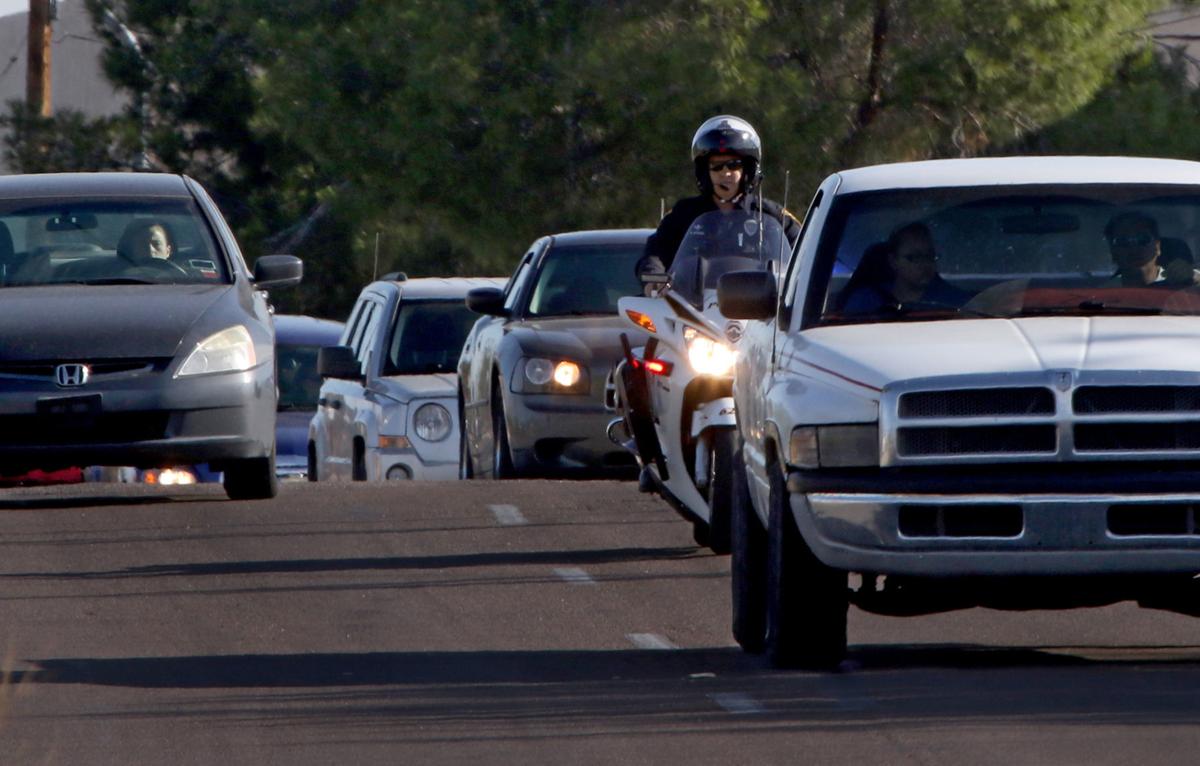PHOENIX — Arizona motorists could soon be able to fight traffic tickets in court without — as they do now — automatically risking higher insurance rates if they lose.
A legislative proposal would allow drivers who think they are innocent — or think they can persuade a judge of that — to attend defensive-driving classes if they are unable to make their case in court.
Right now the opportunity to take a defensive-driving class is available only to those who choose not to contest a citation. The moment someone fights it in court, that option evaporates.
This is important because those who successfully complete the four-hour classes, whether in person or online, have the citation wiped from their records. That means no points on their license.
Most importantly, a ticket erased with a defensive-driving class is not reported to insurance companies. And that means insurers cannot use the citation as an excuse to jack up a premium.
It’s only fair that all motorists be given the same chance to wipe out their tickets for speeding or other offenses, said Sen. John Kavanagh, R-Fountain Hills, who wrote the bill.
“If a person is innocent and wants to avail themselves of their rights to plead not guilty, but unfortunately are erroneously found guilty, they should still have the right to take the course to improve themselves and not get points on their license,” he said.
But David Childers, who lobbies for the Property Casualty Insurers Association of America, said it’s not that simple.
He said the insurance companies he represents have no problem with all motorists who get traffic tickets going to defensive-driving school to become more skilled behind the wheel. The issue, Childers said, is hiding their citations from insurance companies.
Put simply, he said, insurers have to bring in enough money to cover their losses. And right now that system is built on those drivers whose habits are more likely to cause claims paying more. Conversely, good drivers pay less.
Blocking insurers from knowing about bad drivers, he said, undermines all that.
“The people who don’t get tickets will pay for the people who do,” Childers said.
Kavanagh, however, sees the issue through a different lens.
He contends that many of the people who fight traffic tickets really aren’t guilty. But the current system, he said, discourages them from fighting for fear they will lose — and lose the opportunity to have the citation erased.
“So you reward people who break the law, and you penalize people who didn’t avail themselves of their constitutional right to plead not guilty,” he said.
That presumes that those going to court aren’t simply hoping to escape the ticket on a technicality or because the police officer does not show up. Kavanagh, however, said it’s irrelevant to him even if the person did commit the traffic offense.
“Even if the person who pleads not guilty is guilty, they should have the same rights as the person who is guilty and pleads guilty,” he said.
Anyway, Kavanagh said, the current law makes no sense.
“Are we sending people to driving school because we want them to learn something to become safer drivers?” he asked. “Or are we sending people to driving school to bribe them not to avail themselves of their constitutional rights to adjudication?”
Childers said his clients likely have no problem incentivizing people to attend defensive-driving classes — and becoming safer drivers — as long as the information about their tickets was forwarded to the insurance companies to make adjustments in their rates and ensure that only the motorists with bad habits pay the additional charges.
“There could be an issue there,” if rates go up on good drivers to pay for the bad ones who are not identified, Kavanagh responded.
But here, too, he questions the fairness of some of the speeding citations that motorists get.
“It’s balanced the other way because of how easy it is to get an undeserved photo radar ticket,” he said.
This is far from the first time that Arizona lawmakers have tinkered with the idea of making it easier for motorists to escape tickets — and higher premiums.
At one time defensive-driving classes ran seven hours, and attendees were required to sit in a classroom for two evenings or one weekend day.
That has since been shortened to four hours. And now motorists can take the class online from home or office.
And three years ago legislators agreed to let motorists escape a citation once every 12 months by taking the classes. Before that, a driver could not wipe out a second ticket issued within 24 months.
No date has been set for a hearing on Kavanagh’s proposal.





